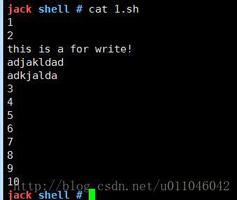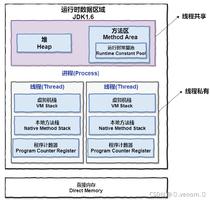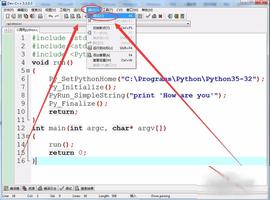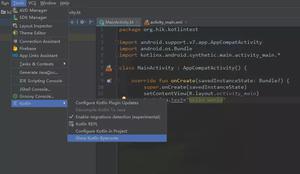在python中使用NLTK使用停用词进行语音标记的一部分?
Natural Language Processing(自然语言处理)背后的主要思想是机器可以在无需人工干预的情况下进行某种形式的分析或处理,至少可以达到某种程度,例如理解文本的某些部分或试图说出来。
在尝试处理文本时,计算机需要从文本中过滤出无用或不太重要的数据(单词)。在NLTK中,无用的单词(数据)称为停用词。
安装必需的库
首先,您需要nltk库,只需在终端中运行以下命令:
$pip install nltk
因此,我们将删除这些停用词,以免它们占用我们数据库的空间或占用宝贵的处理时间。
您可以创建自己的单词列表,可以将其视为停用词。默认情况下,NLTK包含一些被认为是停用词的单词,您可以通过NLTK语料库使用以下命令进行访问:
>>> import nltk>>> from nltk.corpus import stopwords
以下是NLTK停用词的列表:
>>> set(stopwords.words('english')){'not', 'other', 'shan', "hadn't", 'she', 'did', 'through', 'and', 'does', "that'll", "weren't", 'your', "should've", "hasn't", 'myself', 'should', 'because', 'wasn', 'what', 'to', 'this', 'was', 'more', 'y', 'again', "needn't", 'into', 'above', 'themselves', 'd', "won't", 'during', 'haven', 'both', "shan't", 'their', 'on', 'hadn', 'up', 'once', 'its', 'against', 'before', 't', 'while', 'needn', 'doing', "don't", 'yourselves', 'until', 'is', 'all', 's', 'will', "you've", 'being', 'under', 'they', 'ours', 'wouldn', 'of', 'didn', 'below', 'just', 'ma', 'yours', "you'll", 'mightn', 'where', 'are', 'that', 'those', 'most', 'them', 'if', 'you', "shouldn't", 'off', 'for', 'her', 'such', 'now', 'than', 're', 'no', 'm', 'or', "aren't", 'further', 'here', "wasn't", 'after', "haven't", 'my', 'himself', 'at', 'had', 'yourself', 'by', 'weren', 'only', 'have', 'we', 'do', 'same', "isn't", 'herself', 'll', 'down', 'then', 'why', 'own', 'him', 'so', 'having', 'nor', 'isn', 'few', 'how', 'each', 'there', 'with', 'couldn', 'about', 'very', 'am', 'me', "didn't", "doesn't", 'which', "she's", 'doesn', 'were', 'he', 'in', "mightn't", 'when', 'our', 'who', 'his', "couldn't", 'the', "you'd", 'be', 'hers', 'hasn', 'between', 'it', 'mustn', 'but', 'out', 'can', "wouldn't", 'ourselves', 'whom', 'been', 'these', 'aren', 'over', 'itself', 'a', 'i', 'too', 'theirs', 'some', "you're", 'as', 'won', "it's", 'from', 'o', 'don', 'any', 've', 'ain', 'has', 'an', "mustn't", 'shouldn'}
下面是一个完整的程序,它将演示如何使用停用词从文本中删除停用词:
范例程式码
from nltk.corpus import stopwordsfrom nltk.tokenize import word_tokenize
example_sent = "Python is a powerful high-level, object-oriented programming language created by Guido van Rossum."\
"It has simple easy-to-use syntax, making it the perfect language for someone trying to learn computer programming for the first time."\
"This is a comprehensive guide on how to get started in Python, why you should learn it and how you can learn it. However, if you knowledge "\
"o其他编程语言,并希望快速开始使用Python。"
stop_words = set(stopwords.words('english'))
word_tokens = word_tokenize(example_sent)
filtered_sentence = [w for w in word_tokens if not w in stop_words]
filtered_sentence = []
for w in word_tokens:
if w not in stop_words:
filtered_sentence.append(w)
print(word_tokens)
print(filtered_sentence)
输出结果
文本输出:不带过滤器(带停用词)
['Python', 'is', 'a', 'powerful', 'high-level', ',', 'object-oriented', 'programming', 'language', 'created', 'by', 'Guido', 'van', 'Rossum.It', 'has', 'simple', 'easy-to-use', 'syntax', ',', 'making', 'it', 'the', 'perfect', 'language', 'for', 'someone', 'trying', 'to', 'learn', 'computer', 'programming', 'for', 'the', 'first', 'time.This', 'is', 'a', 'comprehensive', 'guide', 'on', 'how', 'to', 'get', 'started', 'in', 'Python', ',', 'why', 'you', 'should', 'learn', 'it', 'and', 'how', 'you', 'can', 'learn', 'it', '.', 'However', ',', 'if', 'you', 'knowledge', 'of', 'other', 'programming', 'languages', 'and', 'want', 'to', 'quickly', 'get', 'started', 'with', 'Python', '.']
文本输出:带过滤器(删除停用词)
['Python', 'powerful', 'high-level', ',', 'object-oriented', 'programming', 'language', 'created', 'Guido', 'van', 'Rossum.It', 'simple', 'easy-to-use', 'syntax', ',', 'making', 'perfect', 'language', 'someone', 'trying', 'learn', 'computer', 'programming', 'first', 'time.This', 'comprehensive', 'guide', 'get', 'started', 'Python', ',', 'learn', 'learn', '.', 'However', ',', 'knowledge', 'programming', 'languages', 'want', 'quickly', 'get', 'started', 'Python', '.']
以上是 在python中使用NLTK使用停用词进行语音标记的一部分? 的全部内容, 来源链接: utcz.com/z/338115.html








